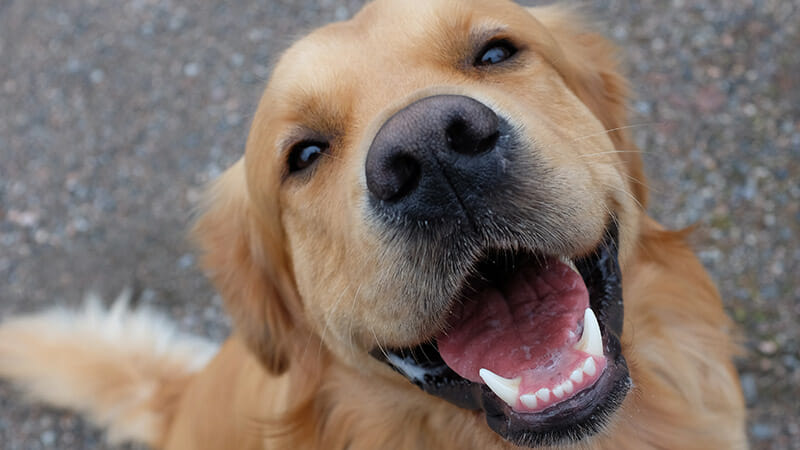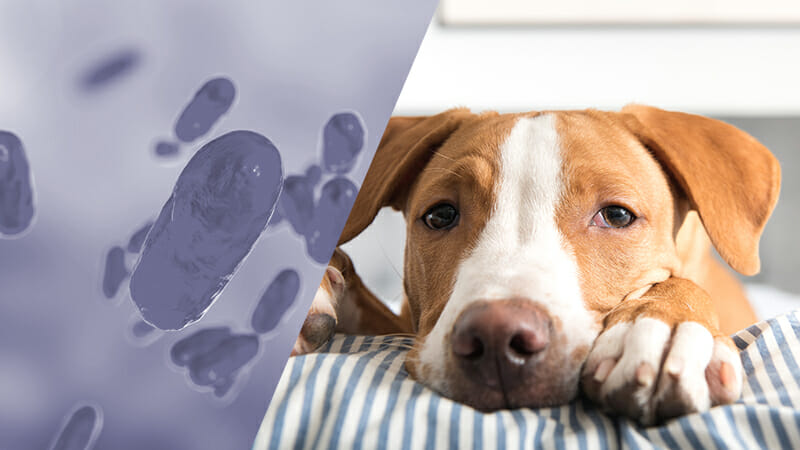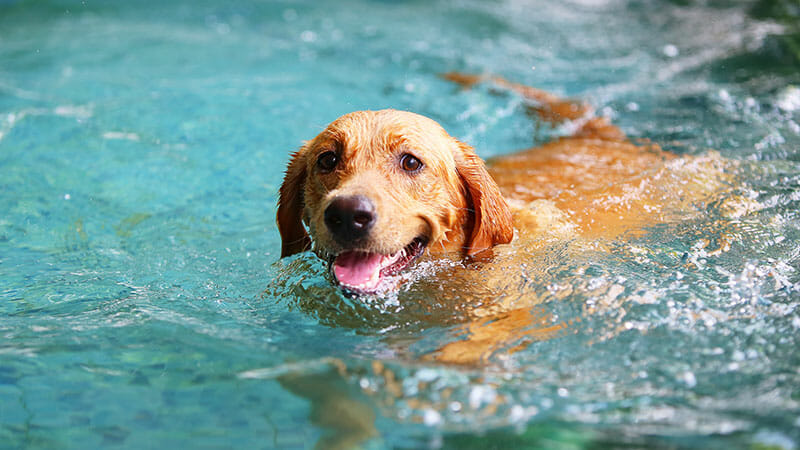- Loss of teeth
- Abscesses in the mouth
- Systemic infections
- Jaw damage
- Heart disease
All of these are bad news and can result in pain and discomfort for your dog and hefty vet bills for you! In this case, the best solution is prevention, so what can you do to help keep your dog’s teeth clean? Keep reading for our favorite tips!
How to Take Care of Your Dog’s Oral Hygiene
Luckily, you have plenty of options for taking care of your dog’s teeth. Choose the ones that work best for you!
Brush Your Dog’s Teeth
Yep, this is the same thing your dentist tells you: brush thoroughly and often! While you don’t need to brush your dog’s teeth twice a day, or even once a day (once a week is good), brushing is still an important part of maintaining good dental hygiene. Just make sure you use a toothbrush and toothpaste designed specifically for dogs—toothpaste for humans contains ingredients that are toxic to dogs, so stay away!
Try Dog Tooth Wipes
Dental wipes are a great solution for on-the-go cleaning and dogs that aren’t ready for a toothbrush and toothpaste, yet. Rub the wipes over your dog’s teeth and along the gum line to help remove plaque. While not as effective as brushing, this is still a good way to stop the buildup of tartar.
Give Your Dog Dental Treats
What dog doesn’t love a yummy treat? Dental treats are available in a variety of shapes, sizes, and flavors, so finding a dental treat your dog loves shouldn’t be difficult, even if it does take some trial and error. Look for ones with shapes that promote chewing and ingredients that have been shown to promote oral health.
Pick Out Dental Chews
Dog chews come in a huge variety, and most of them have teeth-cleaning properties even if they aren’t meant specifically for dental health. Simply the act of chewing benefits your dog’s dental health. Gnawing is great for scraping plaque off teeth, and some chews even contain enzymes formulated specifically to break down plaque and tartar buildup. If you’re searching for specialized dental chews, ask your vet for a recommendation. Many sell dental hygiene chews right in their office!
Schedule a Professional Cleaning
While a professional cleaning is more expensive than the other tips we’ve mentioned, it’s easily the most effective. Ask your vet about scheduling one for your dog at their next exam! But keep in mind that most vets recommend waiting until the cleaning is necessary (to get rid of moderate to severe plaque and tartar buildup) because of the risks associated with sedation.
Signs and Symptoms to Watch Out For
Dog’s don’t always show when they’re in pain, so keep an eye out for these signs and symptoms of dental disease. If you notice one or more, it’s likely time to schedule an appointment with your vet for a consultation. They might recommend a cleaning, as well as other treatment options to get your dog’s dental health back on track.
Bad Breath
Just like with humans, a dog having bad breath can indicate a more serious problem, such as infection or tooth decay.
Abnormal Gums
Your dog’s gums should be pink and smooth. If they’re white or red, or if they look swollen or inflamed, it could indicate an infection or abscess. White gums can also be a sign of severe dehydration, so make sure your dog is getting plenty of clean water.
Plaque and Tartar Buildup
If you see a significant buildup of tartar on your dog’s teeth, particularly on the molars and near the gum line, it’s probably time for a professional cleaning.
Irritation and Lethargy
If your dog is suddenly showing signs of irritability or lethargy, or if they seem reluctant to eat or take treats, they might be in pain. Schedule an appointment with your vet for an evaluation, as this new behavior could be a sign of significant dental problems.
Keep Your Dog Smiling!
We hope these tips for keeping your dog’s pearly whites in good health have been helpful! And remember, even if you’re taking all the necessary steps to promote good dental hygiene, it’s good to have your vet check out those chompers every 6 to 12 months. In the end, you’ll save money on expensive treatments and your pup will be happier and healthier!




